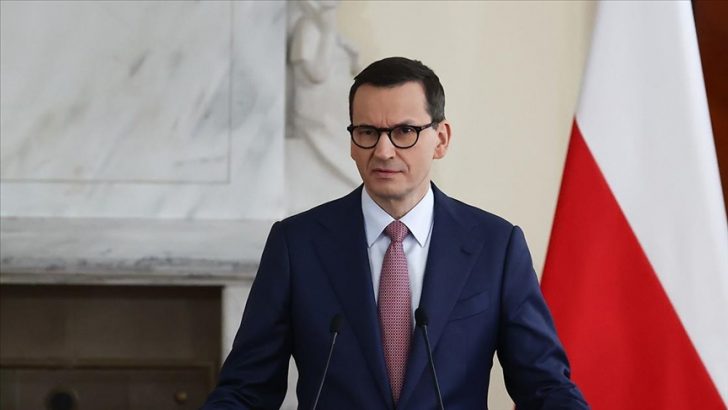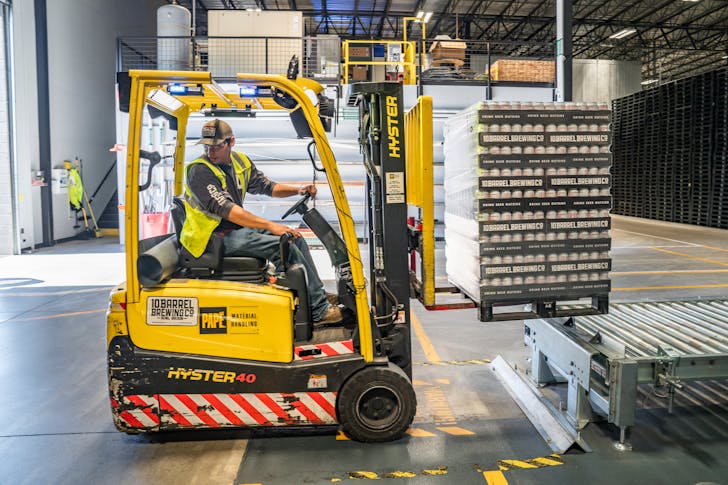
Polish Government to Rise Minimum Wage By 8% in 2025

The Polish government’s minimum wage is set to increase by 8% in 2025. While workers and unions welcome the move, many business groups are sounding the alarm, arguing that it could hurt small and medium-sized enterprises (SMEs) across the country.
The government’s draft regulation outlines an increase to 4,666 zloty ($1,090) per month starting January 2025, slightly higher than initially proposed.
What Does the Polish Government’s Minimum Wage Increase Mean?
The Polish government’s minimum wage hike is a significant change. This adjustment, an 8.5% increase from current levels, follows months of discussions. Initially, the government planned a smaller increase. But the latest proposal raises the figure by an additional 40 zloty ($9.34) per month.

Retell / Per the new minimum wage hike, the hourly wage is set to rise, reaching 30.5 zloty ($7.12), up by 0.3 zloty from the June proposal.
While the news is a victory for workers who have been advocating for higher wages to keep pace with inflation, it is a cause of concern for business owners. The Polish Chamber of Trade has voiced strong opposition, fearing that the increased wage costs will place a heavy burden on businesses, particularly smaller ones.
So, for many employees across Poland, the minimum wage rise is seen as long overdue. Inflation has been eating into household budgets, and the increase will help alleviate some of the financial strain faced by workers on lower incomes. A higher wage means more disposable income, which could stimulate consumer spending in the broader economy. Workers in sectors like retail, hospitality, and manufacturing, who are typically paid minimum wage, stand to benefit the most from this change.
Business Concerns Over the Minimum Wage Hike
On the other side, business leaders are worried about how this increase will affect their bottom lines. Small and medium-sized enterprises (SMEs), in particular, feel they could be disproportionately impacted.

Elevate / Pexels / According to the president of the Polish Chamber of Trade, Maciej Ptaszyński, higher labor costs could lead to widespread closures of small businesses.
Ptaszyński argues that the government’s move might be detrimental not only to SMEs but also to the overall economy. Increased wage expenses could force many businesses to cut back on hiring or even lay off workers to offset the financial strain. Rising operational costs, coupled with inflationary pressures, are expected to squeeze profit margins, especially for businesses that already operate on tight budgets.
What Is the Polish Government’s Rationale?
The government, however, believes that the minimum wage increase is necessary to protect workers from the rising cost of living. Inflation has been a major issue in Poland, as in many other parts of Europe, and wages have not kept up with the rising prices of goods and services. By raising the minimum wage, the Polish government aims to ensure that workers are not left behind in an increasingly expensive economy.
Economists supporting the wage hike argue that higher wages could lead to increased consumer spending, which in turn could fuel economic growth. In their view, the short-term pain for businesses may be offset by long-term gains for the economy. Supporters also point to the fact that Poland’s unemployment rate remains low, suggesting that the economy is strong enough to absorb the wage increases.
Small and medium-sized businesses will undoubtedly feel the pinch of the higher wages. SMEs often have less financial flexibility compared to larger corporations, and the additional costs could push some to the brink. For many, cutting down on staff or reducing hours may become inevitable strategies to cope with the rising wage bill.
More in Business
-
`
What Major Medicare Changes You Should Expect in 2025?
Medicare Advantage Plans with Part D May Raise Costs Starting in 2025, some Medicare Advantage Plans that include Part D prescription...
October 16, 2024 -
`
Top 5 Best Places for Skiing Around the World
When it comes to adventure and winter sports, finding the best places for skiing can take your vacation to the next...
October 10, 2024 -
`
A-List Celebrities at Milan Fashion Week Spring 2025
The excitement of Milan Fashion Week Spring 2025 is palpable as the fashion elite gather to celebrate creativity and style in...
October 1, 2024 -
`
Kidney Infection: Causes, Symptoms, Prevention & Treatment
Kidney infections – AKA pyelonephritis – are serious health conditions that can lead to severe discomfort. But does kidney infection cause...
September 19, 2024 -
`
What to Do in Ubud, Bali – Top Attractions & Activities
Ubud, the cultural heart of Bali, offers an array of activities that capture the essence of this enchanting island. From exploring...
September 11, 2024 -
`
Important Aspects of Your Health You Should Pay Attention To
When thinking about your health, it’s crucial to consider the key factors that create a solid foundation for your well-being. These...
September 6, 2024 -
`
6 Creative Birthday Party Ideas For Adults
Gone are the days when birthdays were just about cakes and candles. Now, it is all about creating memorable experiences that...
August 28, 2024 -
`
Are Chanel and Johnny leaving Days of Our Lives? Here Are the Facts
Fans of Days of Our Lives have been on the edge of their seats, wondering if Chanel and Johnny are leaving...
August 20, 2024 -
`
How Much Does Massage Business Make? A Profitability Breakdown
Curious about how much does massage business make? The massage spa industry in the United States is a significant sector, with...
August 14, 2024















You must be logged in to post a comment Login